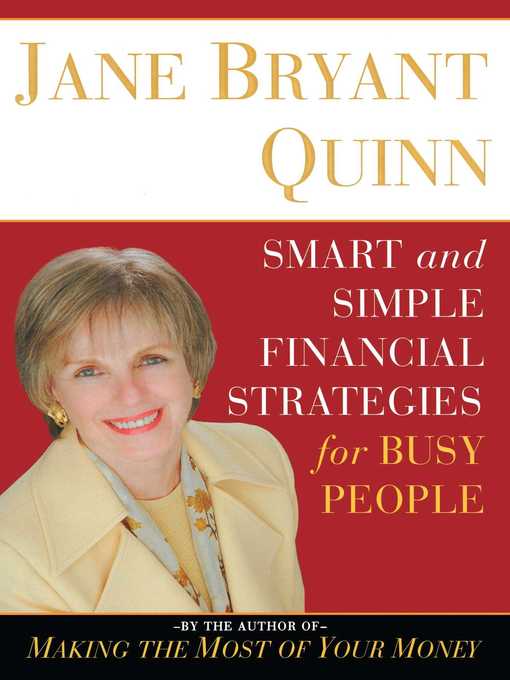
Smart and Simple Financial Strategies for Busy People
فرمت کتاب
ebook
تاریخ انتشار
2006
نویسنده
Jane Bryant Quinnناشر
Simon & Schusterشابک
9780743295932
کتاب های مرتبط
- اطلاعات
- نقد و بررسی
- دیدگاه کاربران
نقد و بررسی

March 6, 2006
Financial maven Quinn's upbeat audio helps busy people put their finances on autopilot with fairly foolproof action plans. Whether she is touting the benefits of repaying a mortgage early, heralding the marvelous innovation of the automatic payroll deduction or encouraging the purchase of index funds, Quinn's attitude is professional and motivational. Her voice suggests that she does not brook fools gladly (witness her clear disapproval for get-rich-quick schemes and the too-good-to-be-true "option ARM" mortgage), but any schoolmarmish moments are balanced by the performance's overall can-do attitude and encouraging tone. While it remains to be seen how effective personal finance advice is on audio—it's an inconvenient way to retrieve specific information when you need it quickly—Quinn does her best to overcome the medium's limitations, carefully spelling the addresses of financial Web sites and repeating important telephone numbers. While the print version of this book is clearly divided into helpful sections (buying a home, planning for retirement, saving for college, etc.), listeners have a harder time locating various topics because the audio package contains no information on locating them. Despite such hassles, this is a lively rendition of Quinn's trademark intelligent, sensible advice. Simultaneous release with the S&S hardcover (Reviews, Jan. 9).

Starred review from January 2, 2006
Quinn's latest guide to personal finance covers the usual terrain: budgeting, consumer debt, mortgages, college funds and investments. However, not every financial writer is blessed with Quinn's charm-a blend of Pollyanna and Mary Poppins with a snappy wit thrown in-and her sensible approach to streamlining one's financial life make this a stellar entry in the genre. Quinn's most useful observation is that people seldom spend money they can't lay their hands on. Hence, she advocates the use of automated account debits to "disappear" paycheck earnings into savings. Credit card debt is dispatched with admirable simplicity: request lower rates from lenders, switch to a cheaper card, or convert credit card to mortgage loan debt. While such solutions aren't foolproof, Quinn explains the caveats of such methods. Some of the more confusing, recent mutations in home mortgages-Option and FlexPay Adjustable Rate Mortgages (ARMs)-are explained and wisely cautioned against, though Quinn could easily be more emphatic in her warnings. She also addresses the topic of college tuition with a sensible bargain-hunter approach: despite the prestige of the Ivy League, many state or small private colleges offer equivalent or superior educations for considerably less money. Quinn's anecdotes about her own monetary struggles add credibility to her advice and uphold her well-deserved reputation as a source of sound financial guidance.

























دیدگاه کاربران